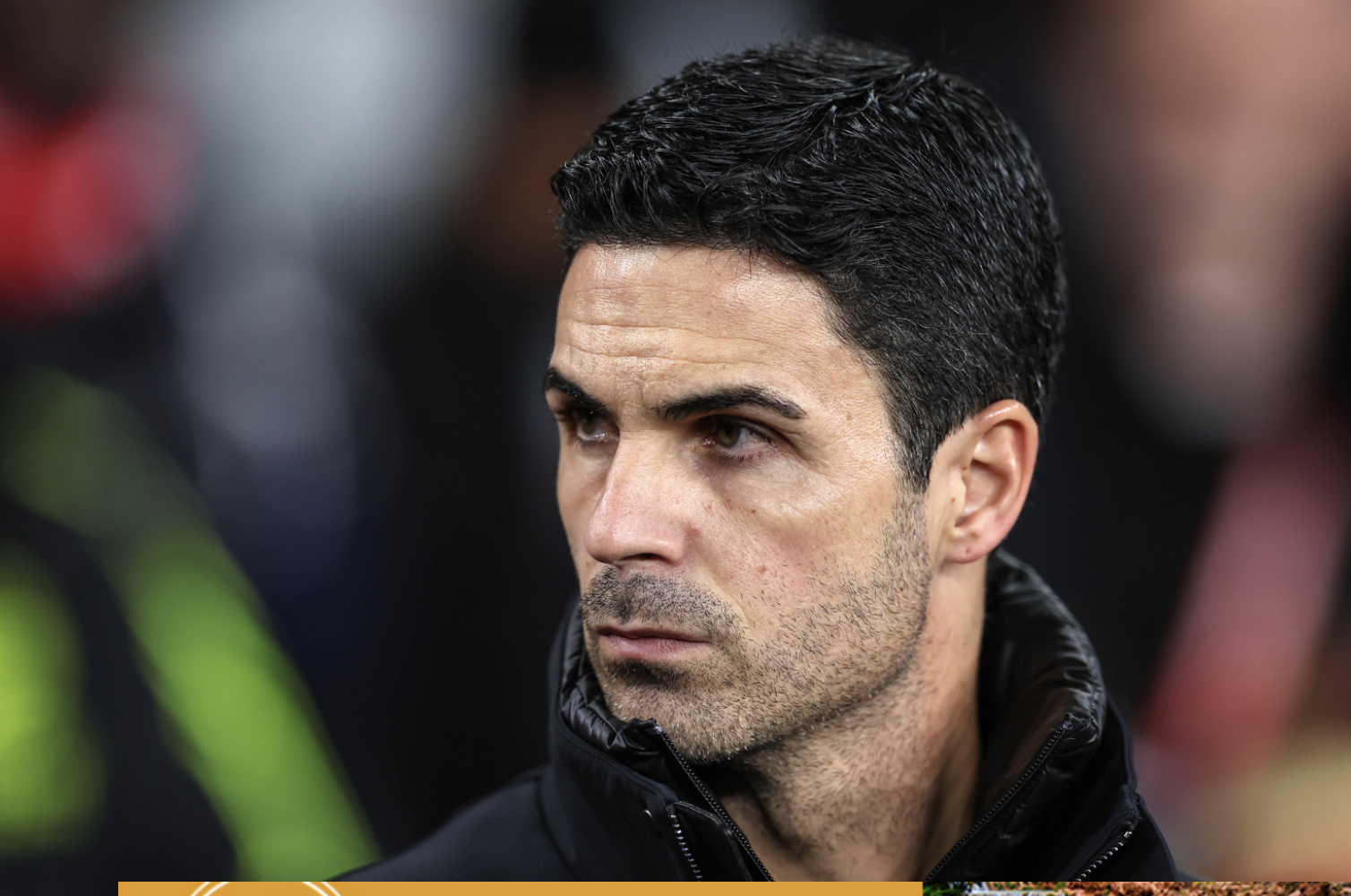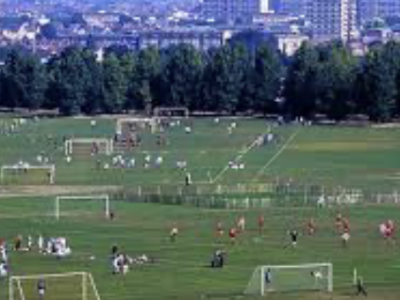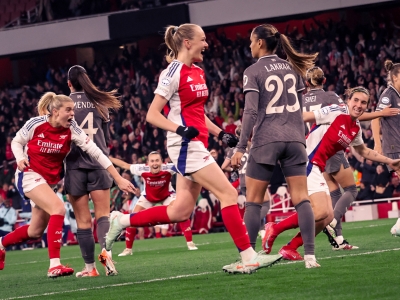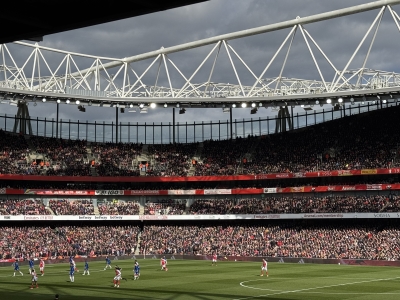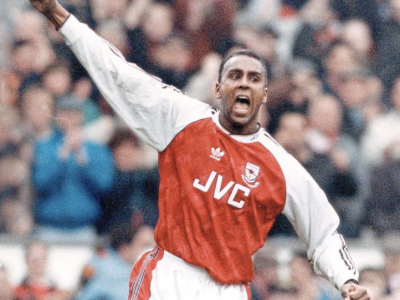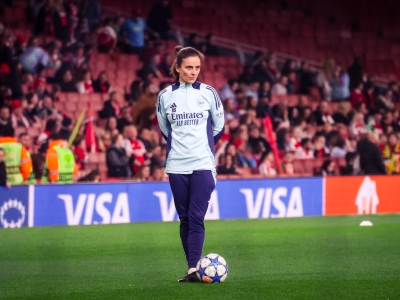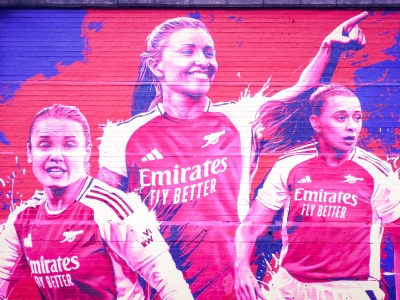Five ways Mikel Arteta has given Arsenal an advantage
Here's a must-read long-form tactical and Arsenal culture breakdown feature by Coach Mike
You can read Mike McDonald in the new print issue of the Gooner Fanzine which you can buy here
Arteta’s tactical advantages
If Mikel Arteta was an inventor he’d be a billionaire.
Some people look at a problem and replicate someone else’s solution.
Some people talk big and pretend to solve the problem hoping you won’t notice.
Some people don’t intend to solve the problem at all. They surround themselves with others who they pass the buck to.
Some people focus on the area of their personal strength and convince you that this is all you need.
Some people see a problem and it excites them. There are not just able to solve it, but have a desire to find the absolute most effective way of fixing it.
Mikel Arteta was given a large problem in December 2019.
The problem was foundational because the culture was rotten. Much like building a house, he could’ve gone short term and possibly won more games but it would’ve collapsed eventually.
Putting new flooring over rotten flooring is going to fool your Friday night guests but come Monday, the stench is going to rise.
He was given the time and trust to rip up the squad. Completely change the expectations and allowed to fail on the way.
A rare allowance in the world of impatient modern football owners. The project was designed and everybody involved agreed to it and more importantly, stuck with it.
We see now that this moment in Arsenal history was much like Arteta laying down his manual that he had written and opening it at Chapter One rather than skipping to Chapter Seven and hoping that nobody noticed that Arsenal Football Club was being held together by an oversized Band Aid.
Fast forwarding five years we are now two-thirds of the way through his manual.
We are the best out of possession team in world football and in the top 10 best teams in Europe, probably top 5.
In order to understand how we got here is an actual book that I hope to write one day. For now I wanted to share with you some of the tactical advantages that we are seeing that allow us to live in the world that Mikel Arteta is trying to create.
A world called ‘Arsenal Dominance.’
Here are a handful of high level advantages that Arsenal now have thanks to Arteta and his team.
1 - ACTIVE MINDS
We have likely all played football. We likely all play it the same way. We run around doing whatever job we have been given and intermittently we have a physical and certainly have a ‘brain break.’
During this brain break we do what is called ‘ball watching’ in football. We watch our friends or enemies move the ball around and then we refocus 10 seconds later and the cycle repeats. It’s not just kids and Sunday League players that do this, it’s professional players too. They may not rest for 10 seconds but they most certainly ball watch.
Mikel Arteta is trying to change football by eliminating that. It’s perhaps one of his hardest and longest projects because all these players grew up playing for other coaches and on other teams where the demands were less and/or totally different.
Remembering that statistically a player only has the ball at his feet for 2.5 minutes per game, the other 98% of the time is 87.5 minutes of something. Changing what players do for 98% of their time on the field is not a quick fix.
So, what does that look like in practice?
Well, it looks like constant positional awareness.
Not just where your marker is. Not just whether you have scanned for colour to be aware of your local teammates, but whether you are supposed to be rotating with a teammate who is now wanting to occupy your space or has done so already.
Whether your body is positioned correctly to receive the ball. Whether your distances to the player you are marking or supporting is correct. Whether you are in the right position for the impending second ball to land in your area so you can win your duel.
Whether you are creating space for yourself or others for a delivery, much like Havertz slowly hovering outside the penalty area and waiting for the cross rather than standing inside the box and being a marked stationary target. An on. And on.
The science behind changing a bad habit is fascinating but if there is any major improvement for all of our players to continually grow in then this is the chapter of the book.
When their ‘ball watching’ habits have been completely eradicated then you will see the largest step towards ‘Arsenal dominance.’
2 - FINE MARGINS
If football at the highest level is a game of fine margins, then maybe we should focus on those margins.
Football seems so complex nowadays. It is.
When you peel back the complexities, it’s still a game where all of your coaching ideas are answering two questions:
1) How do we create chances against this team?
2) How do we deny this team opportunities to score?
Methods change but the endgame remains.
When I grew up football was basic. It was 4-4-2. No variance. Only played one way. Everybody played vertically and with almost no patience. Most players got the ball and launched it forward to the bigger of the two strikers or they dribbled until they got stuck and passed it. When they did pass it, it was almost exclusively forward, even if that meant a low percentage pass.
My coach rarely taught anything. In fact I think I was probably ‘coached’ no more than five times in my young life and that scarcity probably activated my interest in coaching.
Sounds odd but when you discover something once every three years rather than twice a week, it’s like your favorite uncle coming over. He only comes once every three years, but he’s hilarious, can relate to kids and brings you a cool present. You hang off his every action and word. More exciting than Father Christmas.
Because I was so intrigued by the crumbs of coaching I got, I searched for more. My parents didn’t like sport and the only brother I had that liked it was seven years younger than me.
My ‘coach’ was a legend but not because of his coaching ability. He was a legend because he took me everywhere in his Mazda that was so consumed with pipe smoke that I was unsure which other players were in the car until we arrived at the game.
He also looked and laughed like The Penguin in Batman and worked at the local post office so I was utterly convinced that he had to be money laundering. Batman never came to Tring to stop him and he was my only ride to most games so I never told anybody of my ridiculous suspicions.
I started coaching at St. Thomas More Primary school in Berkhamsted when I was 16 and occasionally got rides home from Eddie Niedwiecki whose sons were on my team.
He would talk to me about coaching ideas and I was intrigued by his questions. I started to design different ways to score directly from kick off and taught my strikers to stand offside at throw-ins as you can’t be offside at a throw in and the opponents weren’t even looking. Quick throw over the top, goal.
I then tried to figure out the easiest way to score a goal.
When you are coaching young kids you just need a fast, aggressive kid who can finish and send it over the top to him.
The rest of the team soon got bored and didn’t develop because it became Matty Young F.C. and we noticed that when Matty Young was sick, we lost. I figured out that the easiest way to score wasn’t going to last as kids got braver to head the ball and Matty Young wasn’t the fastest kid in Hertfordshire after all.
I learnt that getting the ball wide, going outside the full back, cutting into the box and then cutting off your chasing defenders running path almost always led to him tripping you up. A penalty is an 80% chance to score and we got lots of them.
So, I watch Arteta’s Arsenal and I see some reflections of my coaching path.
I see a guy who is smart enough to value the parts of the game that others ignore.
I’d imagine that the training ground at Arsenal isn’t just endless rondo’s, passing drills and work on defensive shape. I’d imagine there is a clear block of time dedicated to finding the fine margins that the next game could bring.
I notice that Saka isn’t just learning to dribble to both sides of the defender but he/the coaches have noticed that certain defenders have hips that are more flexible on one side than the other. So, they can’t flip them as well to their left, so he dribbles more on to his right foot because he will get more success that way.
I notice that Odegaard doesn’t always play within 6 yards of Saka. It depends if Saka feels like he can repeatedly cut inside and shoot. If he does, then Martin won’t go so close because if he does then he brings a defender over that will deny Saka the chance to cut inside.
I notice that Havertz sneakily drifts into ‘offside’ positions on throw ins in the final third and will be found hanging out and dribbling across the byline into the box or pull a defender out there so as to open a dribbling path for Saka.
I notice that Ben White is the joker in the pack at corners. He is used in different ways, not just to distract and block the keeper. Our coaches are trying to stay one step ahead of the referees and opponents who prepare for Ben White’s shenanigans, but they change. He is now used more as a lampost in the six yard box. He just plants himself in front of the player that needs to be blocked. There is no rule about standing still and firm and even if the ref thinks it’s obstruction, then Arsenal have taken advantage of the fact that corner kicks are now as difficult to ‘spot the sinner’ than if the Securicor guard’s van door came open and all the money fell on the motorway.
I notice that we are trying to put the ball down earlier at free kicks and catch the opponent facing the wrong way.
I notice that when Rice or Calafiori have room to accelerate with the ball then we intentionally move out of their way, creating the parting of the seas so they can utilize this gift.
I notice too much because I watch and rewatch and make my wife wonder if I have an addiction/mental illness, so I’ll stop there.
3 - TACKLING
Have you noticed how few free kicks and penalty kicks that we give away?
‘Stupid’ used to be our middle name, especially in the box. Gabriel was a good example. Way too over enthusiastic to tackle and would bring players down unnecessarily.
His game has matured. He now rarely makes a mistake. This was illuminated against Bournemouth when Kiwior made an actual mistake leading to their penalty kick and Saliba the same in giving the ref an opportunity to send him off. They stood out like lighthouse’s because Arsenal so rarely make mistakes anymore.
How is that then?
Well, it’s discipline for sure. More than that it’s the coaching instruction that tackling is often overrated.
When you have defenders who are quicker and stronger then isn’t it a more clever strategy to encourage an opponent to attempt to beat you when most won’t or can’t?
The longer you jockey and delay, the more help comes back. It’s also about evaluating the situation at top speed. Should I bring this guy down? He’s 22 yards from goal and James Ward Prowse is on the pitch? I probably shouldn’t because that’s a 30% chance for them whereas if I let him try to dribble or pass past me, that’s a 10% chance.
Too many teams foul just outside the box and seem to consider the ramifications afterwards. At least half of the teams in the Premier League rely on set plays as they can’t break you down.
Arsenal know this and don’t give you freebies. These free kicks aren’t just the ones right outside the box.
When you give away a free kick 40 yards out and on the wing, the quality of set plays has gone up and these are now 15% chances to score.
If you don’t unnecessarily tackle in these areas then just allowing them to keep possession moves that 15% down to 5%
4 - REST POSSESSION and PHASES OF PLAY
This is a fairly new tactic. It’s the decision to intentionally save energy for a period of the game by simply doing a ‘keep away drill’ rather than attempting to score.
At first this will have been directed from the sidelines, but now our players understand what Mikel wants, they will automatically know when certain players are exhausted and they just need to take a physical break and pass the ball around without utilizing much energy. You will see this when Raya, Gabriel and Saliba look like they are playing a 3 v 1 rondo against the opponent’s striker.
This has increased importance because the footballing overlords care far more about money than the players and so have over scheduled the entire sport to the point where I think we will see players begging to not play in the Club World Cup tournament thingy, this summer.
We are now seeing our most important players like Saka, Rice and Odegaard getting taken off after 70 mins so their legs don’t fall off by April.
Arteta also has us playing in phases of play.
There are some home games where we come out all guns blazing and others where he wants to see the opponents set up so we intentionally start methodically. We may have a plan to rest in possession from the 25th-35th minute before turning on the gas for the last 10 minutes before half time.
Again, the season is long and the games are longer too, so you can’t play on the accelerator at all times. I often think that this is why Liverpool look vulnerable at the back as they play with thunder for longer, stretch the field and tire their midfield out. Probably why you rarely see the same Liverpool midfield from game to game.
We are also using different phases of play to confuse and control.
Quick plug here…. Check out my pinned tweet on ‘What Arteta is doing’ @mike_Mmcdonald to fully understand our Juego de Posicion style.
It’s essentially the decision to take transition into a count when attacking. Intentionally putting multiple players around the ball in case you lose it and have to defend a transition. This gives us the control that we are mastering. Win it, slow it down, get everyone in the right areas and then win it back quickly if you are to lose it. Ultimate football or at least for those that want to choose this method.
We are also frequently rotating players into different zones and positions in order to unbalance and confuse opponents. Much of sport is about comfort.
How do you feel going into the game? How do you feel during the game? Are you comfortable with your surroundings or are you dizzy because they keep changing.
Arsenal are trying to make teams dizzy. Just when they think that Trossard keeps attacking the back post, he then pops up on the penalty spot for the cutback and then he’s stopped on the edge of the box and rotated with someone else.
Even though it’s planned and likely that someone else has taken his spot, it’s deeper than that. In certain phases of play our players know who the final target is. That changes though. If the ‘target player’ keeps changing or moving then dizziness occurs in our opponents.
5 - STAFF
I remember when Arteta hired Carlos Cuesta and Miguel Molina.
I was concerned that they were brought in as he was a young coach and he wanted subservient staff.
As it turns out, both of them are mini geniuses like Arteta. They aren’t just cone guys either. They have value and assigned roles.
Fergie figured this out back in the 90’s and had much success because he realized that one man can’t successfully satisfy the needs of 30 players.
That you might be very good but so are others if they are allowed to activate their strengths. They are utilized mainly to help the players one on one. There is so much trust in this because players innately pay more attention when the instruction is specific to them. We all know that the set plays have been turned over to Jover. There’s a chant in there.
Lest we not forget that Mikel is clearly the conductor and he’s bloody good at it, but he’s not the entire orchestra.
I’d imagine that Arsenal are the hardest team to play against. Not only are we good and talented, but we have more bases covered than the other teams.
Even more than City who are being somewhat figured out this year. Stop Haaland, stop 60% of the threat. Arsenal have more ways of creating goals than anyone else. You get no mental rest against Arsenal because they are clever and cleverer than the others.
All designed by Mikel. All very intentional and becoming inevitable.
Mike McDonald writes unique post match reviews for www.Gunnerstown.com and also writes for The Gooner as ‘Coach Mike.’

